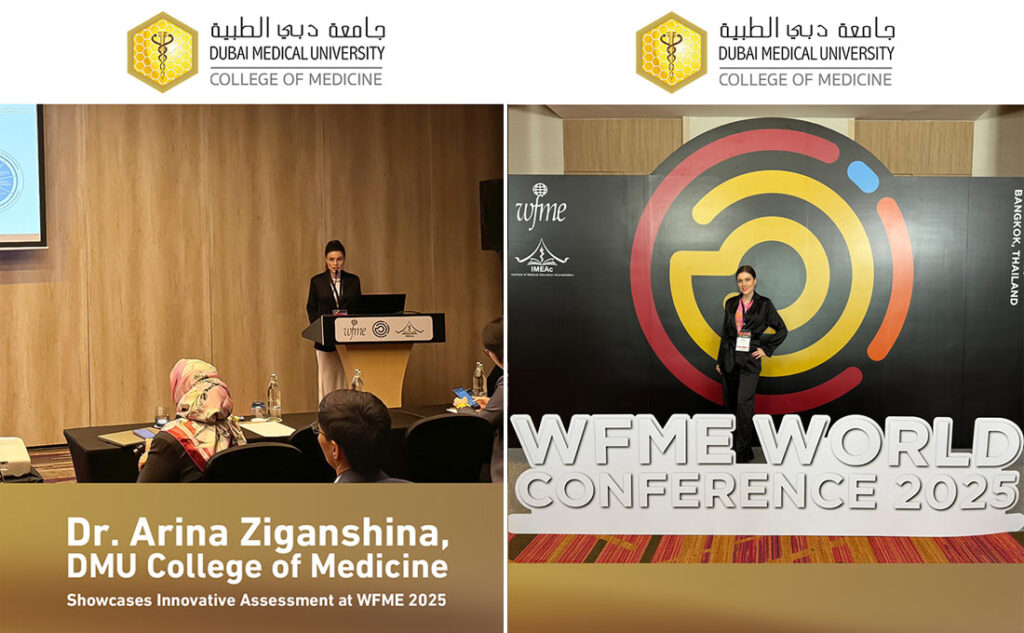
On May 25-28 Dr. Arina Ziganshina attended World Federation for Medical Education world conference 2025 in Bangkok, Thailand. Most sessions were related to the future of Medical Education. Wide accessibility of data and AI tools might change the role of physicians to patient guides in the world of information. Patients in turn must be more and more involved and engaged in decision making regarding their health. A lot was said regarding the importance of cultural awareness in medicine since the world is getting more and more global. An eye-opening workshop related to system-based practice emphasized the requirement for early application of health systems knowledge by medical trainees. It also highlighted the demands for strong collaboration skills in doctors as well as for interdisciplinary education opportunities unifying relevant medical and non-medical professionals. Doctors must also clearly understand how AI works and become friends with technologies. The only way for both educators and doctors to meet these expectations is to be adaptable continuous learners.
In assessment track the educators from all over the world discussed how to reduce bias in grading, listed the factors affecting feedback quality, compared the quality of assessments produced by faculty vs AI and engaged in the debate whether programmatic assessment appears to be feasible. Dr. Arina Ziganshina in turn introduced international colleagues to customized competency centered assessment system at DMU College of Medicine. The title of her work is Contextualized programmatic assessment system for the EmiratesMEDs Competency Framework: The Case Study. The presentation initiated rich discussion and received very positive feedback from the audience.
Since the conference was hosted by WFME the sessions addressing accreditation of medical programs were highly demanded. As a conclusion, the experts agreed that despite high cost and resource investment, institutional accreditation is important and highly beneficial. For instance, it is known to improve educational climate, attract better applicants, increase achievement of learning outcomes, promotes innovation, fosters continuous quality improvement, and even elevates satisfaction of all stakeholders of the educational process.
Finally, conference participants discovered the complexity of identity of a medical teacher. There is no doubt that any ways of faculty development are important, but in addition to the availability of relevant programs and activities institutional support is what really matters. With this said Dr. Arina sincerely thanks College of Medicine and DMU leadership for providing her with an opportunity to learn, network and represent the university in such an insightful educational event.

© DMU - Dubai, United Arab Emirates